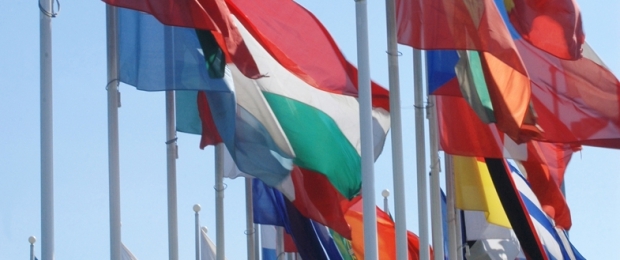
Jobs for the boys
Last year may have been an annus horribilis for the EU, but 2004 looks set to be just as divisive. In between negotiating a new EU budget and a possible starting date for Turkey's accession negotiations, EU leaders have to choose a new Commission president. If and when EU leaders reach agreement on an EU constitutional treaty - sometime in 2004, hopefully - they are likely to create two new posts, that of European Council president and EU 'foreign minister'.
The EU will find that agreeing a candidate to replace Romano Prodi as Commission president is exceptionally hard. Member-states will have to strike a balance between large and small countries, between the left and right of the political spectrum, and between federalists and inter-governmentalists. The risk is that leaders will spend an inordinate amount of time and energy on the decision - but still end up appointing a second rate compromise figure.
While there is a large pool of senior politicians to choose from, it is striking how few impressive candidates have emerged. This is a shame since the last two Commission presidents, Romano Prodi and Jacques Santer, have both been disappointing. Europe desperately needs strong leadership at the top of its institutions. The most credible candidates come from smaller member-states and are little known outside of Brussels political circles. António Vitorino, for instance, has been widely tipped for the post of Commission president. Vitorino has won many admirers as commissioner for justice and home affairs. But he is also a socialist who may not have the full support of the right-wing Portuguese government.
Moreover, the European People's Party looks set to win the European Parliament elections in June 2004. It has already demanded that the next Commission president comes from the centre-right. That reduces the chances of Paavo Lipponen, former prime minister of Finland, who is interested and respected, but a social democrat. The same objection applies to Costas Simitis, the out-going Greek leader.
Consequently, Jean-Claude Juncker, the long-serving Christian Democrat prime minister of Luxembourg, has emerged as the front-runner to become Commission president. Both France and Germany have hinted strongly that they are backing the experienced Juncker, who would have the support of many of the smaller memberstates. Tony Blair is said to dislike him, but since the decision to appoint the next Commission president will be taken by a qualified majority vote, no single country can block a consensus.
If the centre-right Juncker does become the next Commission president then Paavo Lipponen may switch his attention to the proposed European Council president job. Finland was fiercely opposed to the creation of this post, but if Lipponen's candidacy was successful, it could reconcile Finland to the creation of a Council president. Other names mentioned for European Council president are the Danish and Belgian prime ministers, Anders Fogh Rasmussen and Guy Verhofstadt. Both men are regarded as effective political operators. But both are also viewed with some suspicion because of their stances on the war in Iraq, which Rasmussen strongly supported and Verhofstadt deeply opposed.
At some point, the EU will also need to fill the new 'foreign minister' post. Javier Solana's term is likely to end before the constitutional treaty will take effect. In this case, EU leaders will probably ask Solana to carry on for a few more years, with expanded powers. That outcome would suit Joschka Fischer, the charismatic German foreign minister, very well. He remains the front-runner to become EU foreign minister, but Fischer has indicated he wants to seek a third term in office in Germany. But since the post of foreign minister is unlikely to come into effect until well after the next German elections in 2006, this should not be an obstacle.
The EU jobs merry-go-round will start after the June European Parliament elections, when the European Council must put forward its candidate for Commission president. It will fall to the 25 presidents and prime ministers of the enlarged EU to please just one of the candidates - and disappoint all the others. But the beauty of the EU is that negotiations are never really finished. Those who fail to become Commission president can set their sights on a heavyweight portfolio as commissioner or, later, the job of European Council president or EU foreign minister. The end result is most likely to be a classic EU compromise - something no one wants but everyone can accept. In the process, EU leaders could sour the overall political climate inside the EU, and distract attention from much-needed political and economic reforms. Europe deserves better.
Steven Everts was senior research fellow at the CER (2000-2004).
